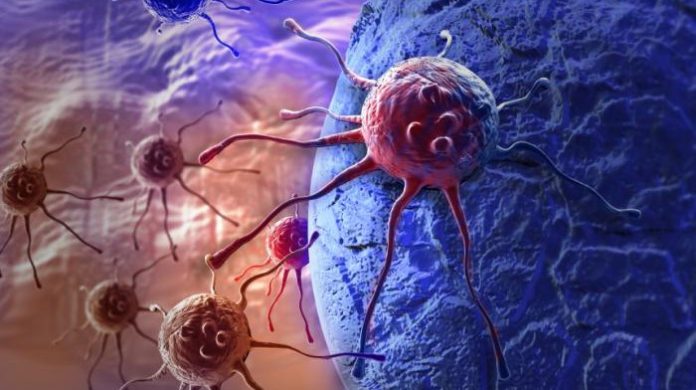
A team of researchers at Massachusetts General Hospital has developed a new platform that can rapidly identify effective drug combinations for lung cancer patients whose tumors have stopped responding to targeted therapy. The findings, published in the peer-reviewed journal Science, are likely generalizable to other types of cancerz and could represent a critical milestone on the road to personalized medicine.
Drug resistance among cancer patients is a devastating problem that occurs when cancer cells fail to respond to one or more drugs used to kill or weaken them. Frequently, resistance is intrinsic to the cancer (meaning that it exists prior to any exposure to drugs or other treatments), but as therapy becomes more and more effective, acquired resistance has also become common. While many new, genetically targeted drugs are very effective at first, they almost always stop working, as cancers can activate so-called ‘escape pathways’ that allow cancer cells to evade treatment.
“If we understand what makes tumors resistant, then we can design better drug combinations – ones that not only attack the cancer but also cut off its escape routes. The current approach doesn’t do the job effectively,” said Alice Shaw, M.D., Ph.D., NFCR-supported scientist and one of the lead researchers on the project.
Scientists investigating drug resistance generally use one of two approaches. The first approach involves modeling the development of drug resistance in vitro by exposing sensitive cell line models to a specific therapy until resistance emerges. In the second approach, genetic analyses of biopsies taken from resistant tumors are used to identify new genetic abnormalities that could be driving resistance.
However, the researchers say both approaches have significant limitations. While the use of in vitro-derived resistant cells (as described in the first approach) can play a crucial role in functional studies, the clinical relevance of the findings is unknown and the results “could never be used to inform treatment decisions for individual patients,” the authors write. Furthermore, because there are few appropriate cell lines that could be used to develop such resistant models, the results only capture a small subset of potential resistance mechanisms.
The second approach, in which scientists study the genetics of resistant biopsies, overcomes some of the limitations of in vitro-derived resistant cells because the observed genetic alterations actually occurred clinically (in a patient). Therefore, the results can provide important clues about the causes of resistance and can even help doctors formulate new hypotheses about treatment and overcoming resistance. However, since the biopsied tissue is nonviable, scientists can’t test these hypotheses directly on the resistant tumor cells. “Furthermore,” the authors write, “many resistant cancers do not harbor genetic abnormalities that clearly point to a treatment strategy,” so this approach often leads to dead-ends.
But scientists may soon have a new and better way to combat resistant cancers: Drawing on the existing approaches, Dr. Shaw and her colleagues at Massachusetts General have developed a new “pharmacogenomic discovery platform” that combines the genetic analysis of resistant cancers with a systematic investigation of potential therapeutic targets using cell lines developed from those same resistant patient tumors. This new platform “permits the discovery and evaluation of therapeutic strategies for clinically relevant mechanisms of resistance,” the authors write.
The researchers tested their new approach with lung cancer patients who had developed resistance to the primary therapeutic agents used to treat their tumor. Using cells taken directly from the tumors of the lung cancer patients, the team developed cell culture models representing unique mechanisms of drug resistance. These cultures were then treated with a host of different drug combinations to find the ones that work. In total, the researchers tested 76 targeted drug therapies across 55 models of acquired resistance with “unknown mechanisms of resistance”.
The results were remarkable, says Dr. Shaw: “We identified several effective drug combinations that would not have been predicted to work using standard testing,” she said. “With further refinements, this strategy might be used to select the optimal treatment for each individual patient, and could also be applied to other types of cancer.”
The team acknowledges that more research is needed before the technique will be ready to be applied in a clinical setting. However, they say the promising findings from this analysis suggest the platform could be used as a diagnostic tool to guide treatment decisions for a range of different drug resistant tumors. “Indeed, it is possible that such functional screens performed on cells derived from a biopsy of a particular patient’s resistant cancer might inform the choice of experimental therapies that are most likely to be effective in that patient,” they write, “advancing toward a future of truly personalized cancer therapy.”
